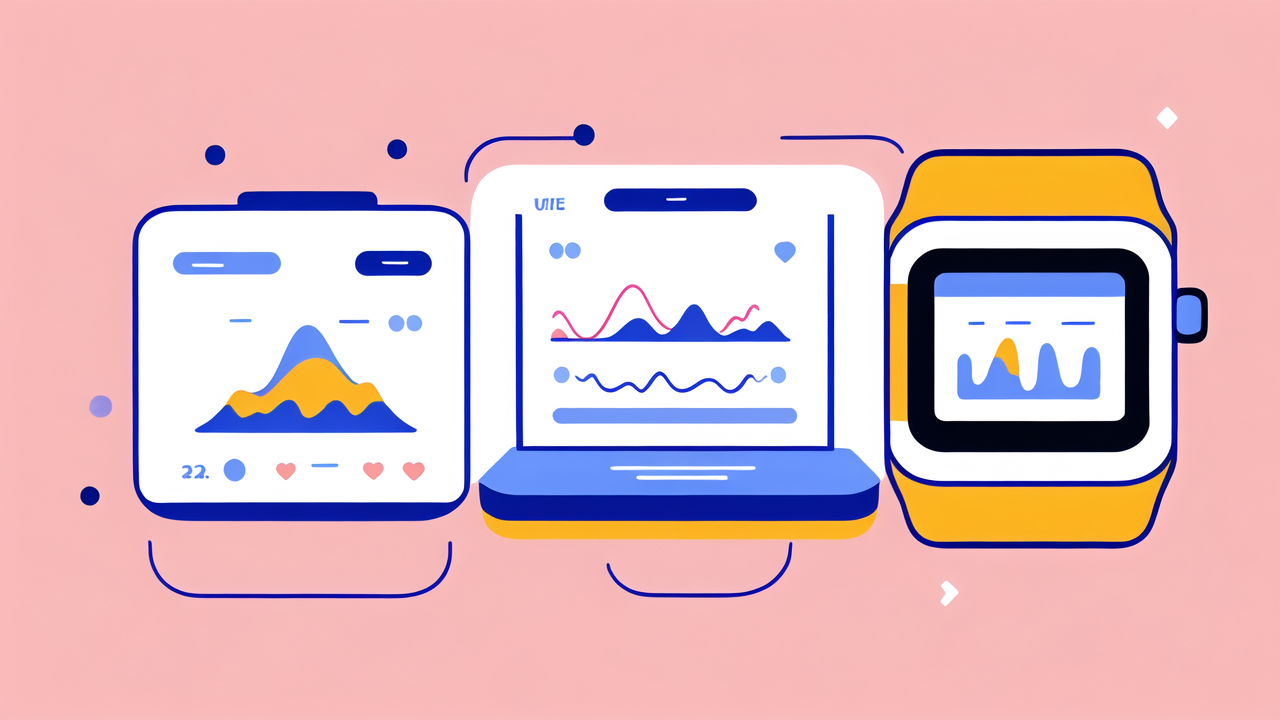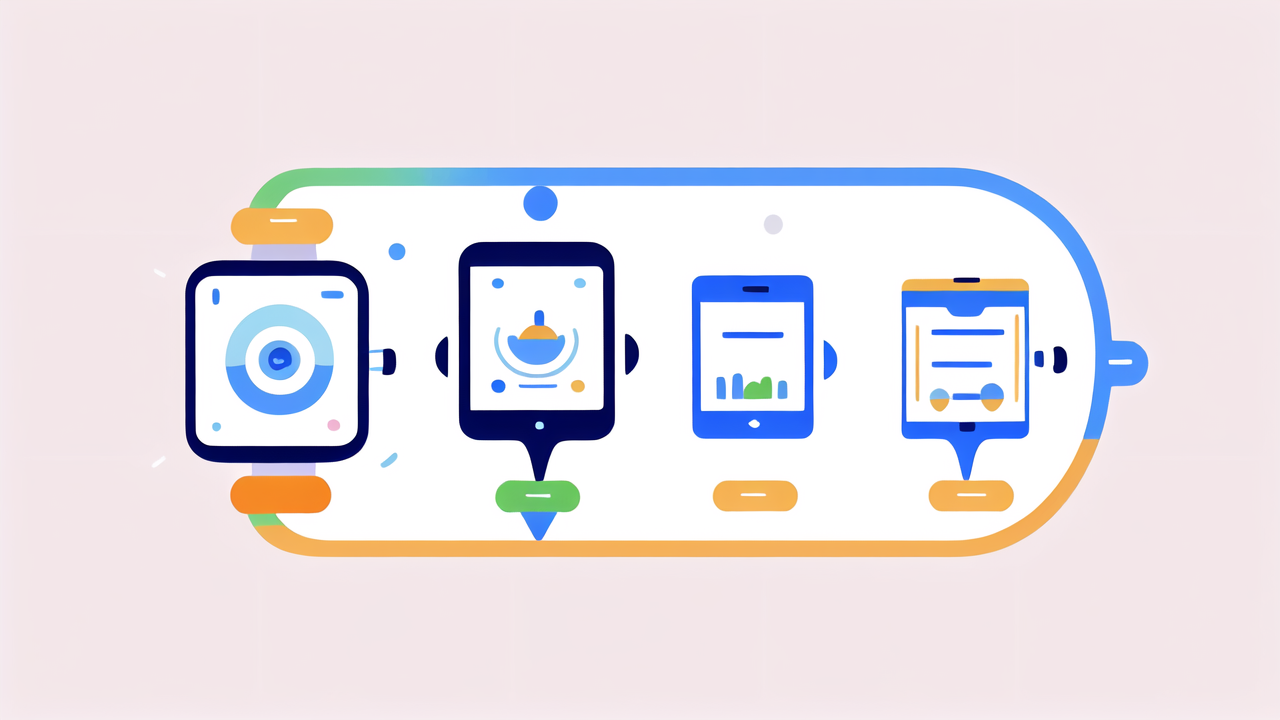Introduction to Health and Wellness Wearables
The Rise of Smart Pro Watches in the Health Market
Smart pro watches have taken the health market by storm. These devices offer advanced features that go beyond simple step counting. They can track heart rate, sleep patterns, and even blood oxygen levels. Many models now include ECG sensors for heart health monitoring. The appeal lies in their all-in-one approach to health tracking. Users can get a comprehensive view of their wellness without multiple devices. Smart watches also offer style and functionality, making them attractive to a wide range of consumers. Their popularity has grown as people become more health-conscious and tech-savvy.

Traditional Fitness Trackers and Their Evolution
Fitness trackers have come a long way since their introduction. Early models focused mainly on step counting and distance tracking. Over time, they added features like heart rate monitoring and sleep tracking. These devices are often simpler and more focused on fitness-specific data. They typically have longer battery life due to fewer features. Fitness trackers have evolved to include some smart features, but remain distinct from smart watches. Their main appeal is in their simplicity and focus on core fitness metrics. Many users prefer them for their ease of use and dedicated fitness tracking capabilities.
Key Differences Between Smart Pro Watches and Traditional Fitness Trackers
Advanced Features of Smart Pro Watches
Smart pro watches offer a wide range of advanced health features. These include:

- ECG monitoring for heart health
- Blood oxygen level tracking
- Stress level monitoring
- Menstrual cycle tracking
- Fall detection and emergency alerts
Many smart watches also offer GPS tracking, music storage, and mobile payment options. They often have color touchscreens and can run various apps. Some models even allow users to make calls directly from their wrist. The ability to customize watch faces and receive notifications adds to their appeal. These features make smart watches versatile tools for both health and daily life management.
The Limitations of Traditional Fitness Trackers
Traditional fitness trackers have some limitations compared to smart watches. They often lack:
- Advanced health monitoring features
- Large, interactive displays
- App ecosystems
- Smart notifications
Most fitness trackers focus on basic health metrics like steps, calories, and sleep. They may not offer the depth of data that smart watches provide. Their displays are usually smaller and less interactive. This can make it harder to view and analyze data on the device itself. However, these limitations often result in longer battery life and a lower price point. For some users, these trade-offs are worthwhile for a simpler, more focused device.
Integration Capabilities with Health Systems
Smart pro watches often have better integration with health systems. Many can sync data directly with healthcare providers' systems. This allows for real-time monitoring of patients with chronic conditions. Some watches can even detect potential health issues and alert medical professionals. Integration with health apps and platforms is usually more comprehensive. Users can often share data with multiple health and fitness apps easily. This creates a more connected health ecosystem.
Fitness trackers may have more limited integration capabilities. They often work well with their own apps and some popular fitness platforms. However, they may not offer the same level of connectivity with broader health systems. The data they provide is usually more focused on fitness metrics rather than overall health. This can limit their usefulness in medical settings or for managing complex health conditions.
Analyzing the Benefits for Consumers and Health Professionals
Enhancing Personal Health and Wellness
Smart pro watches offer significant benefits for personal health management. Users can:

- Track a wide range of health metrics in one device
- Receive alerts for irregular heart rhythms or low oxygen levels
- Set and monitor health goals more comprehensively
- Access guided workouts and wellness programs
These features help users take a more proactive approach to their health. They can identify potential issues early and make informed lifestyle changes. The ability to view trends over time can motivate users to maintain healthy habits. Smart watches also often provide more detailed insights and recommendations based on collected data.
Fitness trackers, while more limited, still offer valuable benefits. They excel at:
- Tracking daily activity levels
- Monitoring sleep patterns
- Providing motivation through challenges and goals
- Offering long battery life for consistent tracking
For many users, these core features are sufficient for maintaining an active lifestyle. The simplicity of fitness trackers can be less overwhelming for those new to health tracking. They provide clear, actionable data without the complexity of a full smart watch.
Impact on Healthcare Services and Research
The rise of smart pro watches is changing healthcare services. Doctors can now access more detailed patient data between visits. This allows for:
- Better monitoring of chronic conditions
- Early detection of potential health issues
- More personalized treatment plans
Research benefits from the large amounts of data collected by these devices. Studies can analyze real-world health trends on a massive scale. This data helps in understanding population health and developing new treatments.
Traditional fitness trackers contribute to research as well, particularly in areas of physical activity and sleep. Their data is valuable for studying:
- The impact of exercise on overall health
- Sleep patterns and their effects on well-being
- The effectiveness of fitness interventions
While their data may be less comprehensive, the large user base of fitness trackers provides significant sample sizes for studies.
Future Trends in Wearable Health Technology
The future of wearable health technology looks promising. We can expect to see:
- More advanced sensors for detailed health monitoring
- Improved AI for personalized health insights
- Greater integration with telemedicine services
- Expanded use in clinical trials and medical research
Smart pro watches are likely to become even more powerful health tools. They may incorporate features like:
- Continuous glucose monitoring
- Blood pressure tracking
- Advanced allergy and environmental sensors
Fitness trackers will likely continue to evolve as well. We may see:
- Improved accuracy in tracking various activities
- More advanced sleep analysis features
- Longer battery life and more durable designs
Both types of devices will likely play important roles in the future of personal health management. The choice between them will depend on individual needs and preferences. As technology advances, the line between smart watches and fitness trackers may blur further. This could lead to even more comprehensive and accessible health tracking for all users.




Leave a comment
This site is protected by hCaptcha and the hCaptcha Privacy Policy and Terms of Service apply.